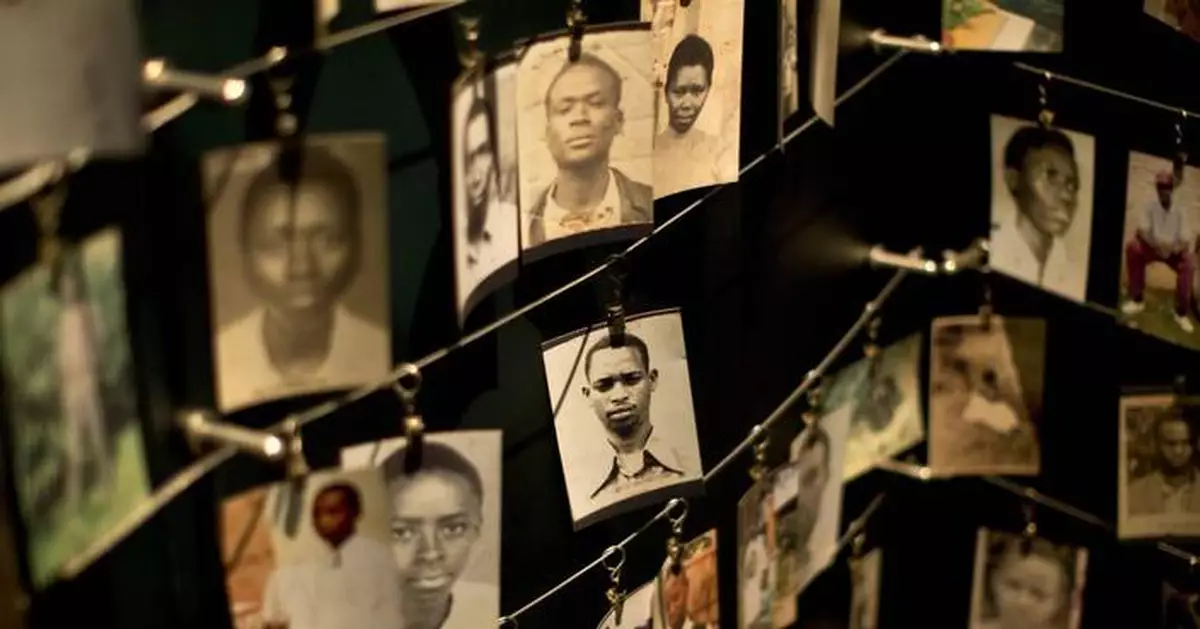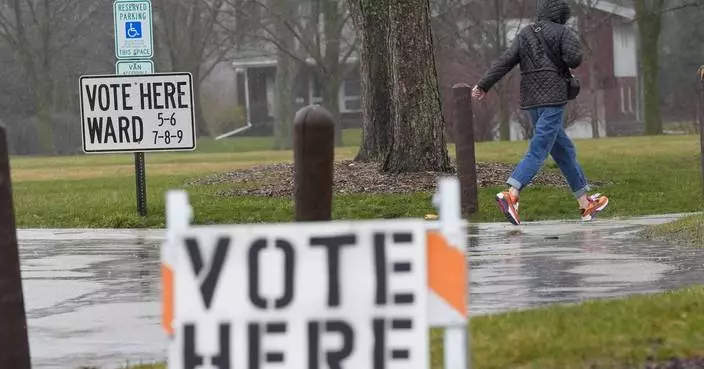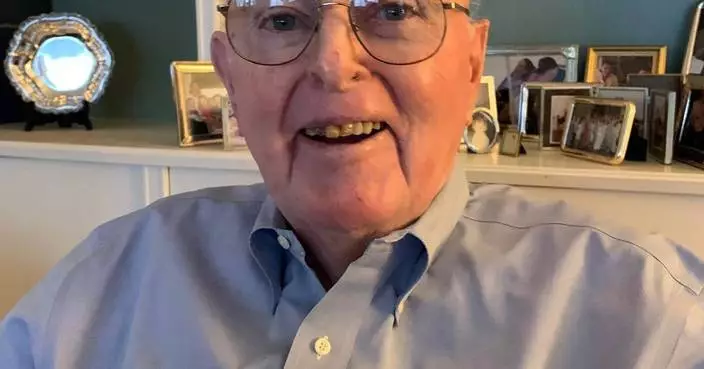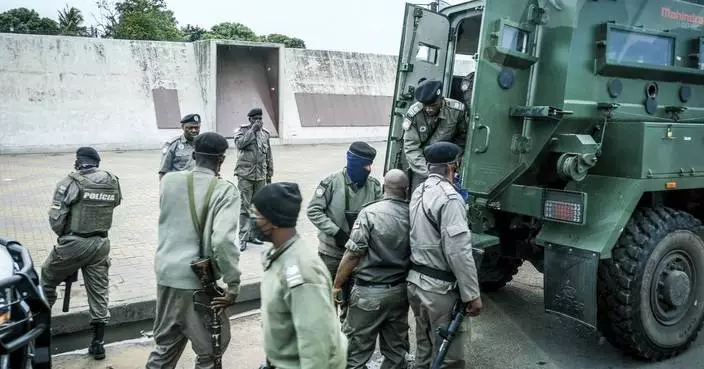PARIS (AP) — Bullets flew. Then men with machetes and clubs burst into a convent where people had found refuge, killing almost all the boys and men.
Angélique Uwamahoro was 13 at the time of the 1994 genocide in Rwanda. She said she had to walk through the bodies to survive.
Three decades later, she told her story on Tuesday at a Paris court where a former doctor is on trial for his alleged role in the mass killings of more than 800,000 minority Tutsis and moderate Hutus who tried to protect them.
The dead included some of Uwamahoro's family members. She said she came to court to “seek justice for my people, who died for who they were.”
The accused is Eugène Rwamucyo, a 65-year-old former doctor who is charged with genocide, complicity, crimes against humanity and conspiring to prepare those crimes. He has denied any wrongdoing.
If found guilty in the trial that started this month and is scheduled to end next week, Rwamucyo is facing life in prison.
Several witnesses traveled to Paris and gave graphic descriptions of the killings.
On Monday, another survivor, Immaculée Mukampunga, described attacks on Tutsi civilians who had gathered at a seminary. “They attacked us, using the same method: first the machete on top of the head, then the throat, then the ankles," she said.
She said she hid her children, aged 5 and 6, by covering them with bodies.
"I put blood on me, on the children too, so that they would believe we were dead,” she said.
Antoine Ndorimana was 9 when the genocide started. He told the court he had been hiding with his family in a church when they were found.
“Those with machetes and clubs started hitting people. Some slit their ankles, others their throat ... And then they stayed to see if anyone was still alive,” he said. He had been struck by a club but tried to stay still.
The next day, Ndorimana saw men putting bodies and wounded people in mass graves. He said he was almost buried alive in one but managed to escape.
The defendant, Rwamucyo, is accused of spreading anti-Tutsi propaganda and supervising operations to bury victims in mass graves, the prosecution said.
The former doctor said his role in mass-grave burials was motivated only by “hygiene-related” considerations and denied survivors were buried alive.
This is the seventh trial related to the genocide, involving eight Rwandan nationals, that has come to court in Paris, all in the past decade.
In December, another doctor, Sosthene Munyemana, was found guilty of genocide, crimes against humanity and helping prepare a genocide and sentenced to 24 years in prison. He has appealed.
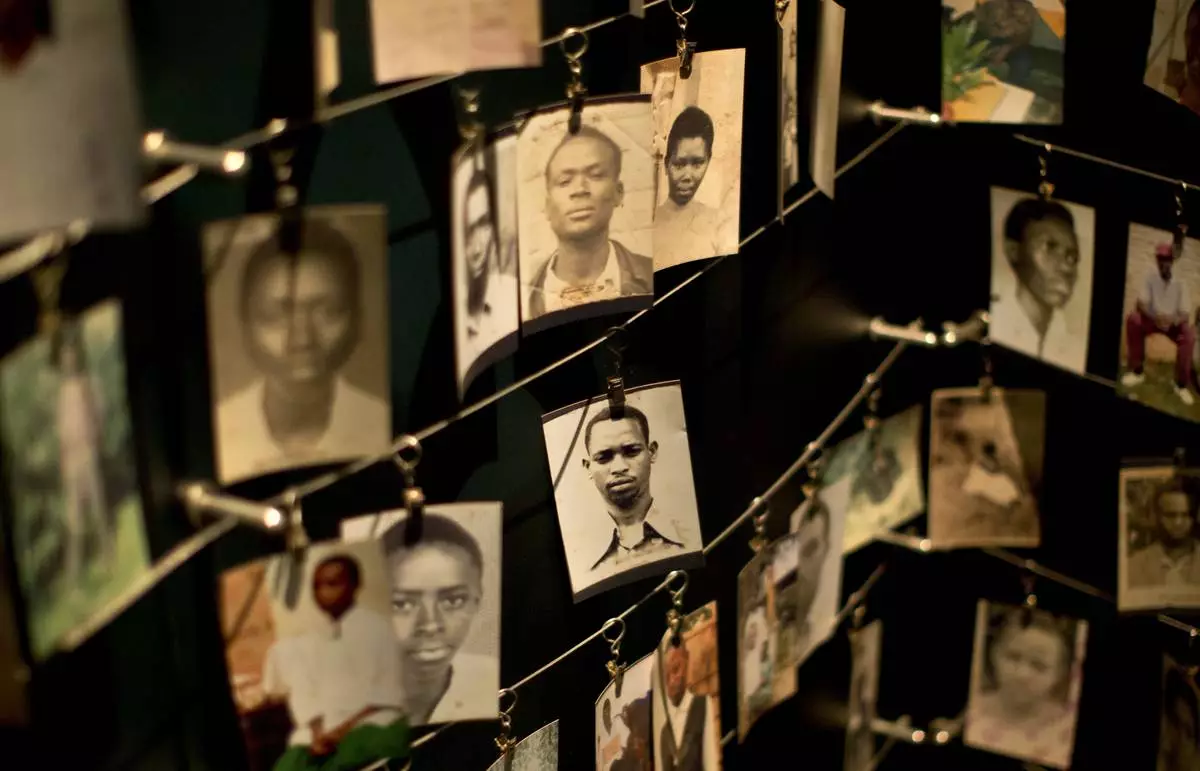
FILE - Family photographs of some of those who died hang in a display in the Kigali Genocide Memorial Centre in Kigali, Rwanda, April 5, 2014. (AP Photo/Ben Curtis, File)
ATLANTA (AP) — Georgia's highest court on Tuesday reversed a judge's contempt ruling against a lawyer for rapper Young Thug who refused to tell the judge how he found out about a meeting between the judge, prosecutors and a prosecution witness.
Defense attorney Brian Steel represents the rapper, who is currently on trial in Atlanta on numerous charges including violation of Georgia’s anti-racketeering and gang laws. Fulton County Superior Court Chief Judge Ural Glanville in June found Steel in contempt and ordered him to spend the next 10 weekends in jail, an order that was put on hold pending Steel's appeal.
Steel argued that his information was subject to attorney-client privilege, that he didn't interfere with the court's proceedings and that Glanville was required under due process to recuse himself from the contempt proceeding since Steel was accusing the judge of wrongdoing.
The Supreme Court justices agreed with Steel that due process required Glanville to remove himself from the handling of the contempt issue.
“Because the court delayed punishment, the alleged disobedience was directed toward the court, and the court was involved in the controversy that formed the basis of the contempt, due process required the judge to recuse from the contempt proceeding. We therefore reverse the contempt imposed by the trial court,” Presiding Justice Nels Peterson wrote in the unanimous opinion.
Young Thug, a Grammy winner whose given name is Jeffery Williams, was charged two years ago in a sprawling indictment accusing him and more than two dozen other people of conspiring to violate Georgia’s anti-racketeering law. He also is charged with gang, drug and gun crimes and is standing trial with five of the others indicted with him.
Jury selection in the case began in January 2023 and took nearly 10 months. Opening statements were in November and the prosecution has been presenting its case since then, calling dozens of witnesses.
In open court on June 10, Steel told Glanville that he had learned of a meeting in the judge's chambers that morning and proceeded to move for a mistrial. In an order finding Steel in contempt and ordering him jailed, Glanville wrote that he had “serious concern with how this information was improperly disclosed” to Steel.
While the judge asserted that Steel had information he shouldn't have had, Steel had argued that the information hadn't been declared confidential by any court order.
Glanville was removed from the long-running case in July over that meeting that he held with prosecutors and a state witness. Another judge granted motions from two defendants seeking Glanville's recusal, saying she did not fault Glanville for holding the meeting but that “the ‘necessity of preserving the public’s confidence in the judicial system’ weighs in favor of excusing Judge Glanville” from the case.
Fulton County Superior Court Judge Paige Reese Whitaker has taken over the case, which is expected to extend into next year.
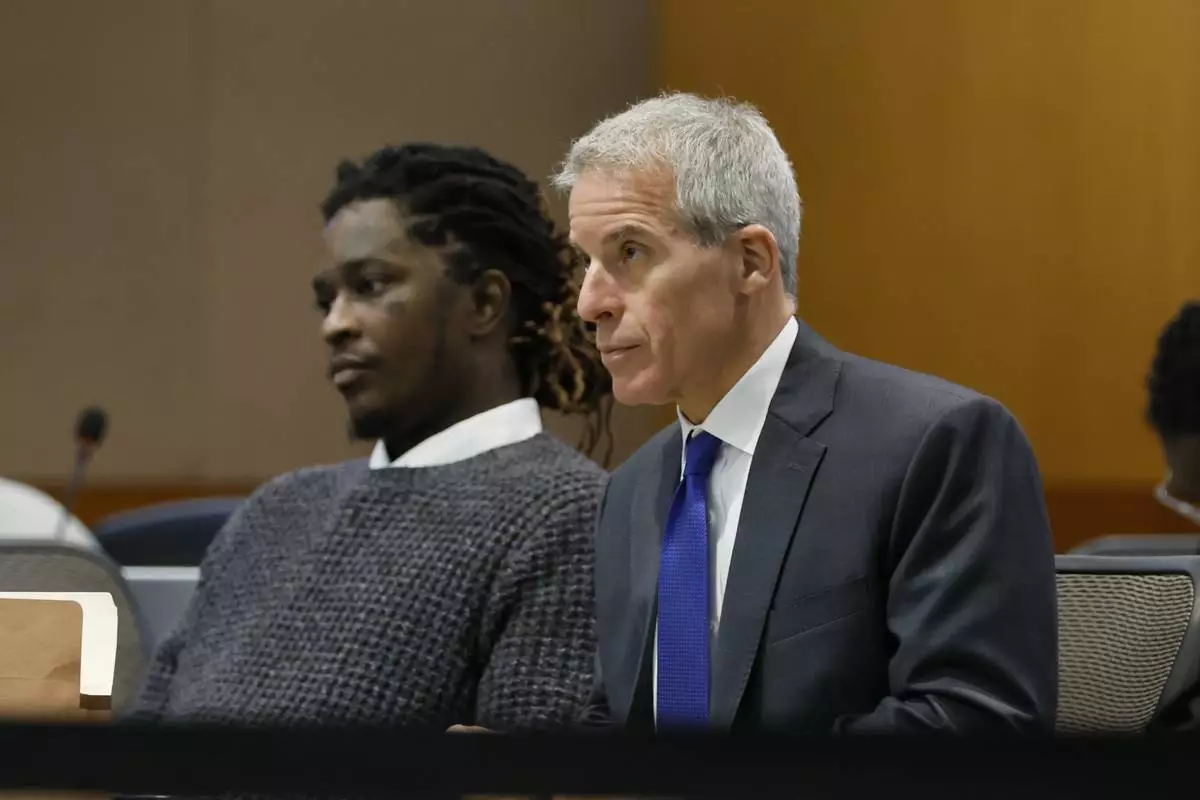
FILE - Young Thug, whose real name is Jeffery Lamar Williams, and his lawyer, Brian Steel, watch Judge Ural Glanville speak during the hearing of key witness Kenneth Copeland at the Fulton County Superior Court in Atlanta on June 10, 2024. (Miguel Martinez/Atlanta Journal-Constitution via AP, File, File)



